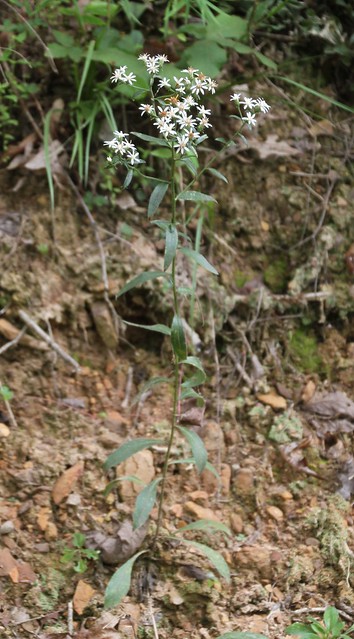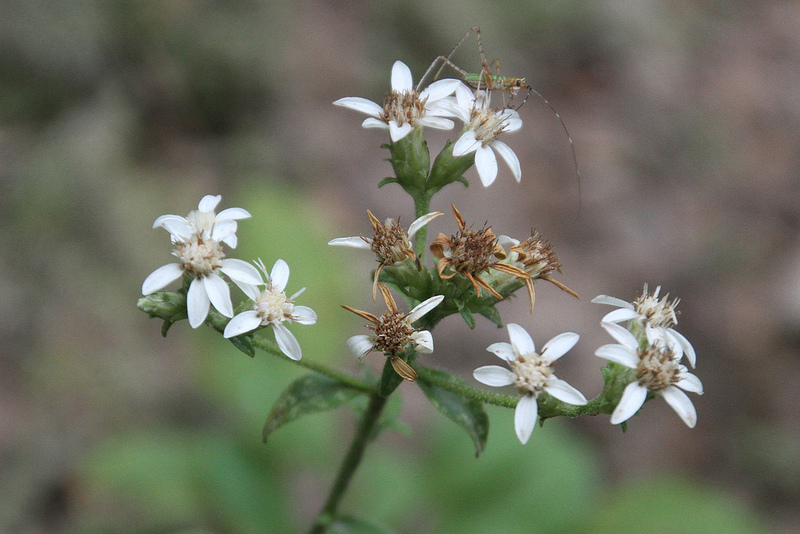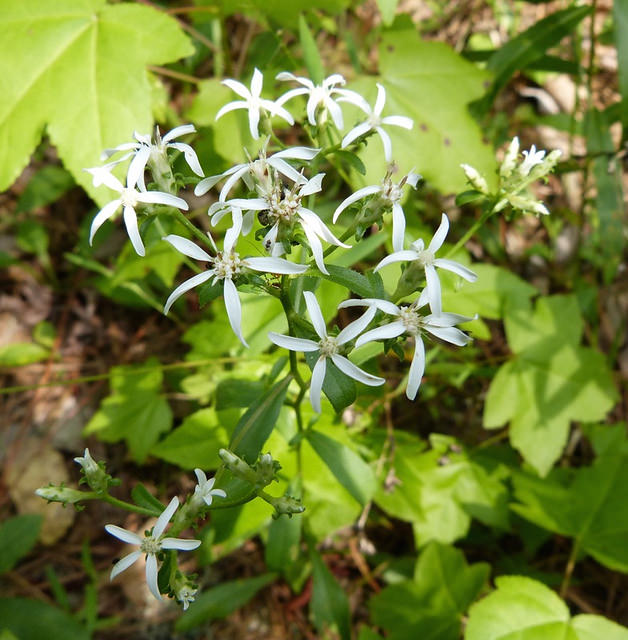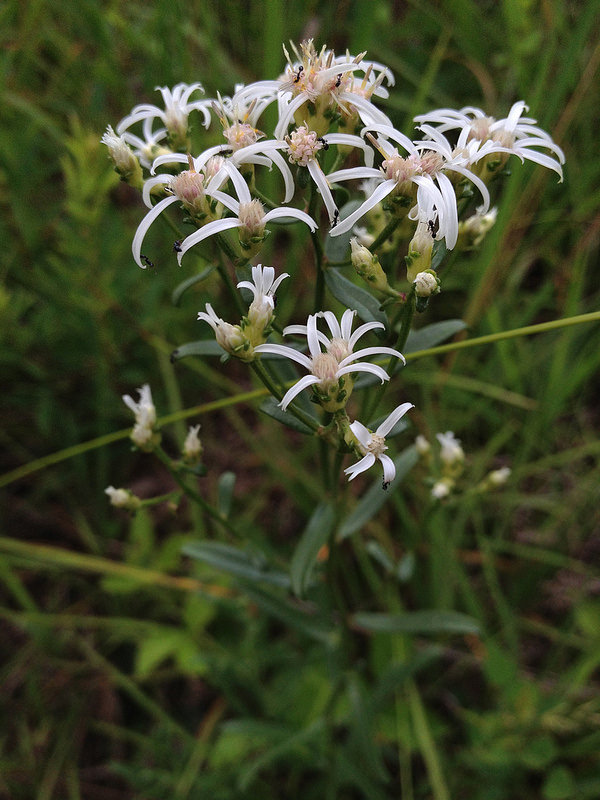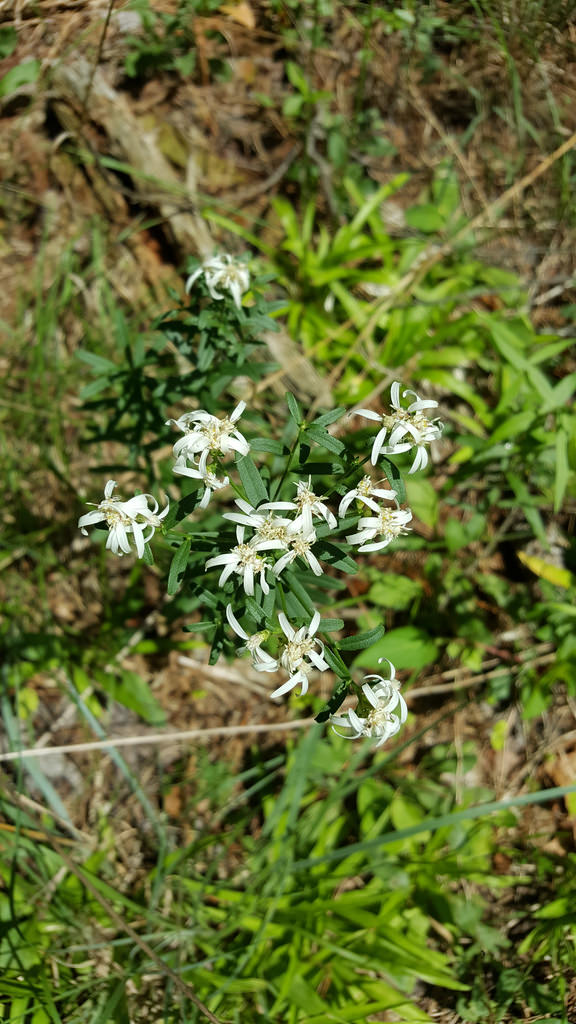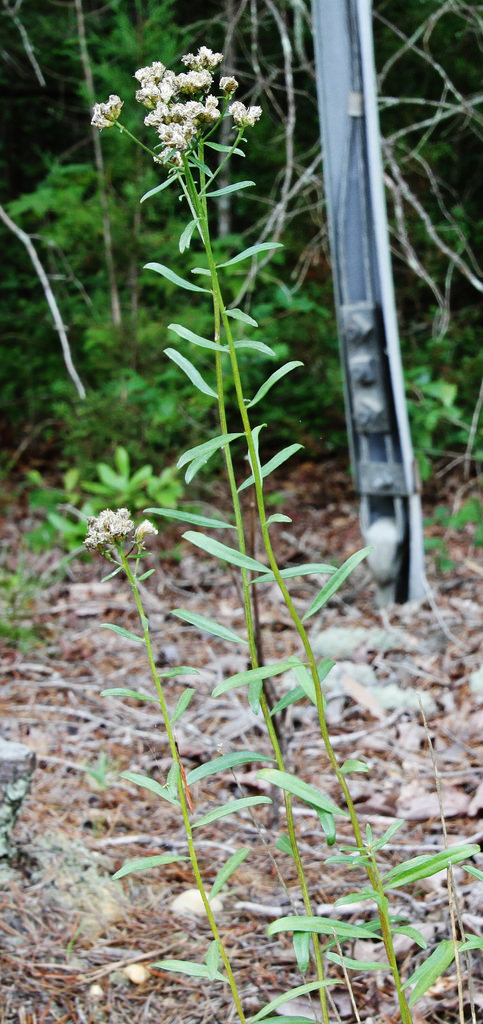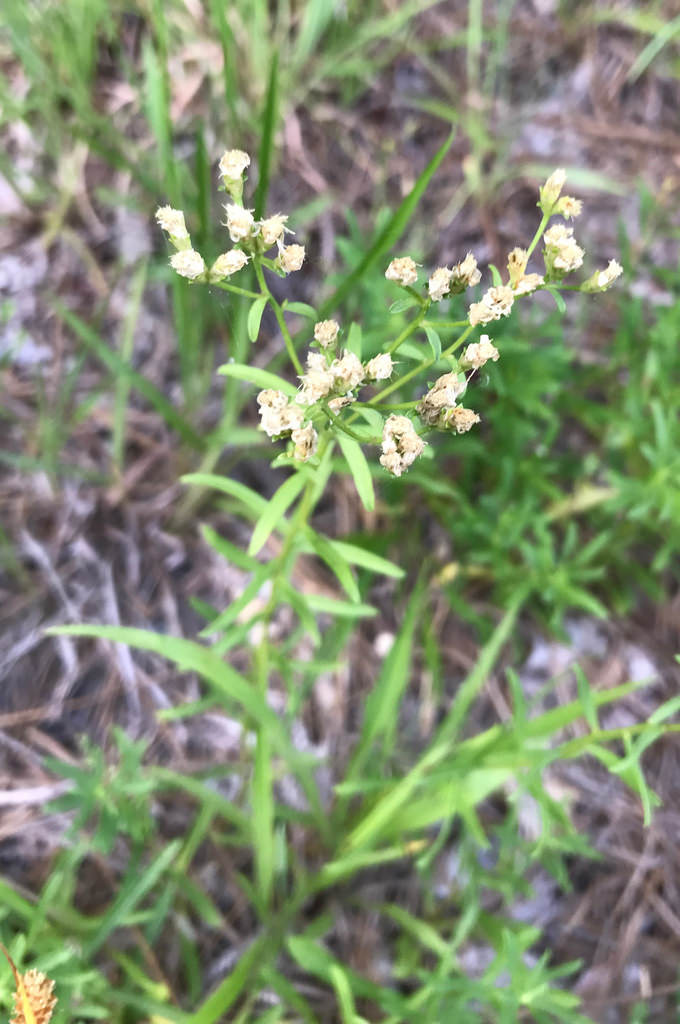Map Snapshot













26 Records
Seasonality Snapshot
Source: Wikipedia
| Sericocarpus linifolius | |
|---|---|

| |
| Scientific classification | |
| Kingdom: | Plantae |
| Clade: | Tracheophytes |
| Clade: | Angiosperms |
| Clade: | Eudicots |
| Clade: | Asterids |
| Order: | Asterales |
| Family: | Asteraceae |
| Genus: | Sericocarpus |
| Species: | S. linifolius
|
| Binomial name | |
| Sericocarpus linifolius | |
| Synonyms[1] | |
|
Aster solidagineus Michx. ex Willd. | |
Sericocarpus linifolius, the narrowleaf whitetop aster or flax leaf whitetop, is a perennial forb native to the eastern United States,[2] that produces white composite flowers in summer.
Description
[edit]
Sericocarpus linifolius has a smooth slender 30 to 75 centimeter tall stem. Its leaves are sessile, they are 2.5 to 5 centimeters long, and only 3 to 6 millimeters wide. They are thick and rough around the edges. The flower heads are borne on branches forming a flat topped cluster. Each flower head consists of 5 to 15 disk flowers and 2 to 6 ray flowers, which are about a centimeter long. The fruit are cypselae with a pappus of white bristles.[3][4]
Distribution and habitat
[edit]Sericocarpus linifolius is widely distributed in the eastern United States, although local distribution may be spotty. It has been recorded in Alabama, Connecticut, Washington, D.C., Delaware, Georgia, Indiana, Kentucky, Louisiana, Massachusetts, Maryland, Mississippi, North Carolina, New Hampshire, New Jersey, New York, Ohio, Pennsylvania, Rhode Island, South Carolina, Tennessee, Virginia, and West Virginia. Sericocarpus linifolius is listed as an endangered species by the state of Pennsylvania, and threatened in Ohio, New Hampshire, and New York.[2] In Virginia it grows in habitats such as dry woodlands, barrens, riverside prairies, clearings, and meadows.[5] The presence of this species is dependent on appropriate habitat, and it may be eliminated from an area by development, changes in land use, or competition with invasive species.
References
[edit]- ^ "Sericocarpus linifolius (L.) "Britton, Sterns & Poggenb." - The Plant List". Retrieved January 25, 2014. The Plant List (2013). Version 1.1. Published on the Internet; http://www.theplantlist.org/
- ^ a b "Plants Profile for Sericocarpus linifolius (narrowleaf whitetop aster)". Retrieved January 25, 2014. USDA, NRCS. 2014. The PLANTS Database (http://plants.usda.gov). National Plant Data Team, Greensboro, NC 27401-4901 USA.
- ^ Britton, Nathaniel Lord & Brown, Addison (1913). An Illustrated Flora of the Northern United States, Canada and the British Possessions: From Newfoundland to the Parallel of the Southern Boundary of Virginia, and from the Atlantic Ocean Westward to the 102d Meridian, Volume 3., p. 405. Charles Scribner's Sons, New York.
- ^ "Sericocarpus linifolius in Flora of North America @ efloras.org". Retrieved January 30, 2014. 'eFloras (2008). Published on the Internet (http://www.efloras.org). Missouri Botanical Garden, St. Louis, MO & Harvard University Herbaria, Cambridge, MA.
- ^ "Digital Atlas of the Virginia Flora | Sericocarpus linifolius (L.) B.S.P." Retrieved January 25, 2014. Virginia Botanical Associates. (2014). Digital Atlas of the Virginia Flora (http://www.vaplantatlas.org). c/o Virginia Botanical Associates, Blacksburg.
